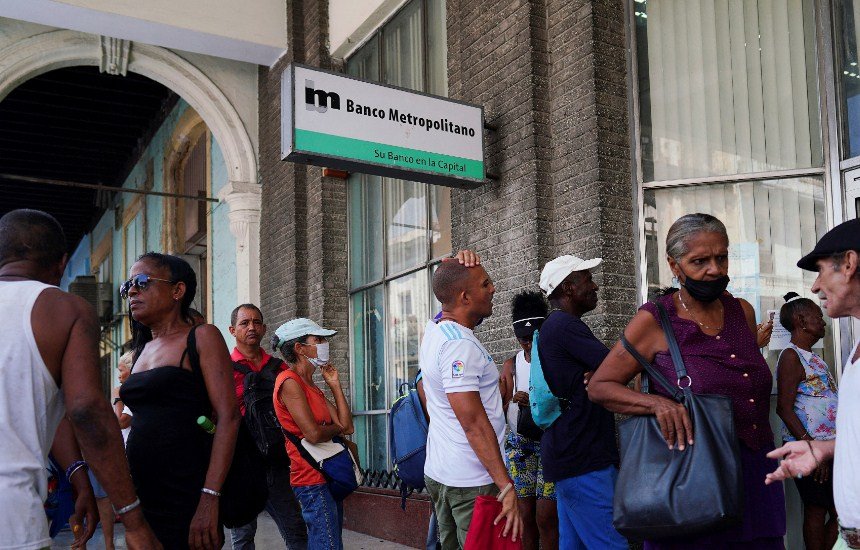A government-sponsored street fair in Havana requires electronic payments only
On Saturday, September 9, 2023, the Cuban government organized a street fair along Galiano Street in Central Havana, where all transactions had to be done electronically. Cash was not accepted. The fair, which began at eight in the morning, had among its offers the sale of meat, clothing, footwear, produce, mobile phone accessories and cleaning products.
The event was part of the government’s plan to phase out the use of cash and replace it with electronic payment platforms, specifically Transfermóvil and Enzona. These apps allow users to pay for goods and services through POS terminals and QR codes using their mobile phones. Banks offered 10% bonuses on the purchases made through these platforms.
The government claimed that the use of electronic payments was a viable alternative for the public due to the issues with cash and ATMs. However, the fair did not attract many customers, despite the relative abundance of products and the lower prices compared to the informal markets.
Customers prefer cash over electronic payments
Many customers who visited the fair were not convinced by the benefits of electronic payments. Some complained about the lack of internet access or mobile data, which prevented them from using the apps. Others said they preferred cash because it was more convenient and secure. Some also expressed distrust of the government’s intentions and feared that their transactions would be monitored or taxed.
According to some observers, a significant portion of the transactions at the fair were done in cash, despite the official prohibition. Some vendors accepted cash under the table or used intermediaries to process the electronic payments for them. Others simply refused to sell their products if the customers did not have cash.
The government’s push for digitalization faces resistance
The street fair was one of the latest attempts by the Cuban government to promote digitalization and bancarization in the country. The government has been trying to reduce the use of cash and encourage the use of bank accounts and electronic payments since it implemented a monetary reform in January 2021, which eliminated the dual currency system and devalued the peso by 96%.
The government argues that digitalization and bancarization will help improve the efficiency and transparency of the economy, as well as facilitate foreign trade and investment. However, many Cubans are reluctant to embrace these changes, due to various factors such as poor internet infrastructure, low incomes, high inflation, lack of trust in the banking system and the government, and preference for informal markets and remittances.
The government-sponsored street fair in Havana was an example of how the communist regime tries to impose its vision of modernization on a population that is not ready or willing to accept it. The fair was a failure in terms of attracting customers and promoting electronic payments. It also showed how Cubans resist and circumvent the government’s policies that affect their daily lives.

